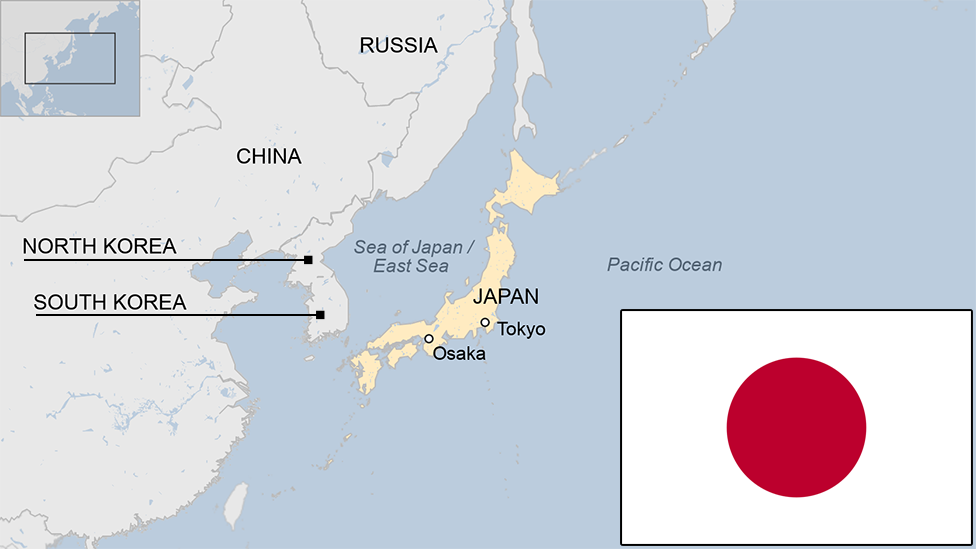Shigeaki Hinohara: Remarkable life of Japan's centenarian doctor
- Published
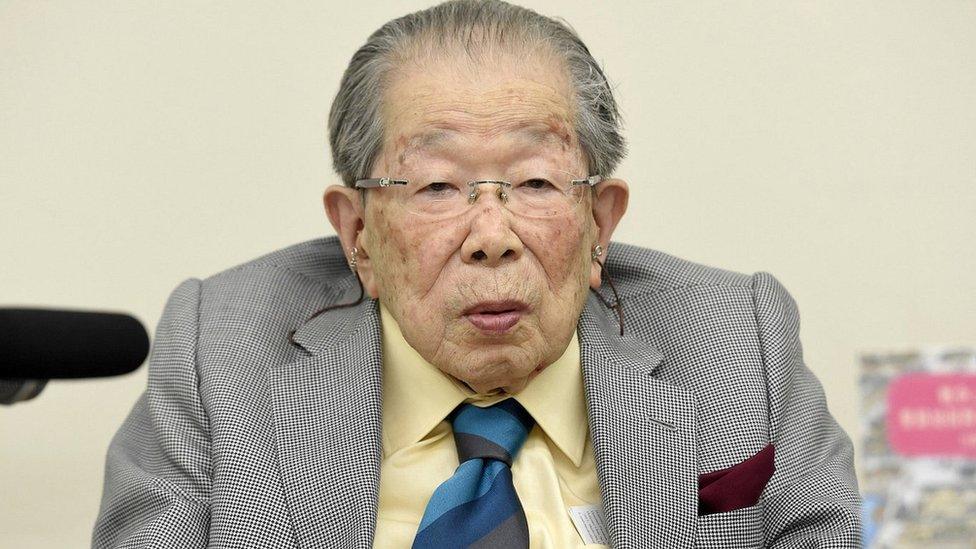
Shigeaki Hinohara was a well known and highly respected figure in Japan
Shigeaki Hinohara, one of Japan's most famous doctors, has died at the age of 105.
Dr Hinohara continued seeing patients until months before his death and frequently offered advice on how to live well.
Described by his colleagues as Japan's national treasure, he headed five foundations in addition to being the president of St Luke's International Hospital in Tokyo.
Here are some highlights from his remarkable life.
He began working during World War Two
Dr Hinohara began his working life as a doctor at St Luke's in the 1940s.
During the war he helped to treat victims of the firebombing that destroyed large parts of the Japanese capital.
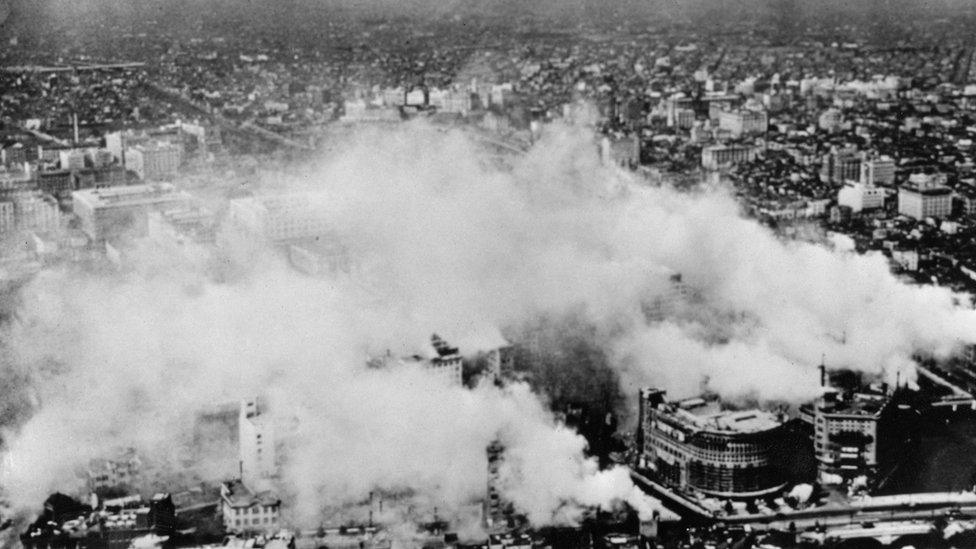
Much of Tokyo was destroyed by bombing in World War Two
He once survived a plane hijacking
In 1970 Dr Hinohara was a passenger on a Japan Airlines plane hijacked by the communist militant group, the Japanese Red Army.
The hijackers, who were armed with swords and pipe bombs, took 129 hostages on the flight from Tokyo to Fukuoka, later releasing them at Fukuoka and the South Korea capital Seoul before flying on to North Korea where they were offered political asylum.
In a 2008 interview with the Japan Times, Dr Hinohara said the hijackers had explosives strapped to them "and we were terrorised, wondering whether the negotiations might break down".
He wrote the script for a musical
A great music lover, Dr Hinohara, at the age of 88, wrote a script for a Japanese musical entitled The Fall of Freddie the Leaf.
The show was first performed in 2000 and Dr Hinohara also acted in the production, dancing with children, the Japan Times reported.
TV appearances into old age
Dr Hinohara frequently appeared on Japanese television, urging audiences to have more fun in their lives and to ward off illness by always giving themselves something to look forward to.
On TV and through a best-selling anthology of essays called How to Live Well, he encouraged others to do away with strict rules on when to eat and sleep. One of his last pieces of advice was; always take the stairs and keep up your strength by carrying your own bags.
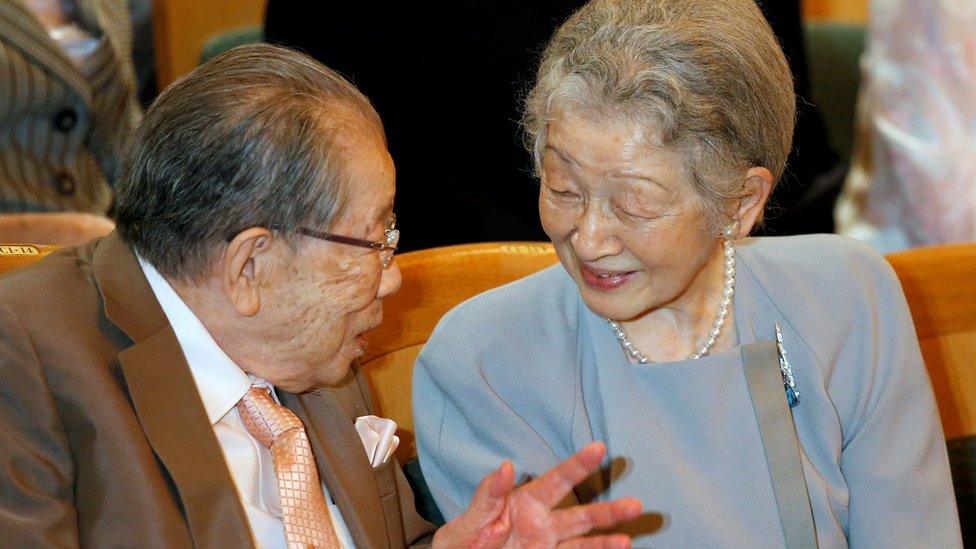
Dr Hinohara believed in keeping an active social life. He met Japanese Empress Michiko at this concert in 2016
"We all remember how as children, when we were having fun, we often forgot to eat or sleep," he once said.
"I believe we can keep that attitude as adults - it is best not to tire the body with too many rules such as lunchtime and bedtime."
Contributions to healthcare in Japan
In 1954 Dr Hinohara introduced Japan's system of comprehensive annual medical check-ups - called "human dry-dock" - which have been credited with greatly contributing to the country's longevity.
He was also a strong advocate of maintaining an active social life into old age.
Dr Hinohara became director of St Luke's in the early 1990s and, according to the Japan Times, had oxygen tubes installed throughout the building in 1994 to prepare for mass casualties if an earthquake struck the capital.
The next year, a sarin gas attack on Tokyo's metro by members of a cult killed at least 12 and injured thousands but the hospital was able to cope with the number of patients because of Dr Hinohara's preparations, the Times says.
'Most energetic person I have ever met'
Many tributes have been paid to Dr Hinohara, including by the Japan Times journalist Judit Kawaguchi, who knew him well.
She told the BBC World Service World Update programme , externalthat he had amazing energy and drive.
"I met him when he was already in his 90s and I would say he drastically changed my mind about ageing because even then he was working 18 hours, seven days a week, and he was the most energetic person I've ever met," she said.
"He believed that life is all about contribution, so he had this incredible drive to help people, to wake up early in the morning and do something wonderful for other people. This is what was driving him and what kept him living."
She added: "He always had today's goals, tomorrow's and the next five years. I feel very sad that he died because his dream was to attend the Olympics in Tokyo in 2020. That was his next big goal and he couldn't make it.
"But he was just an amazing, amazing person and everybody who met him was transformed because of him."
- Published6 May 2017
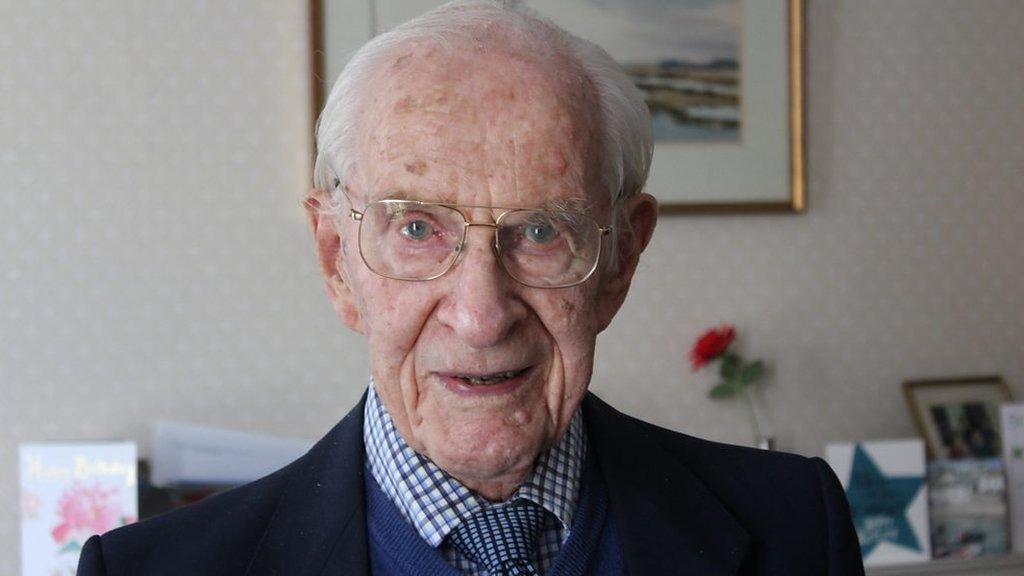
- Published20 July 2016
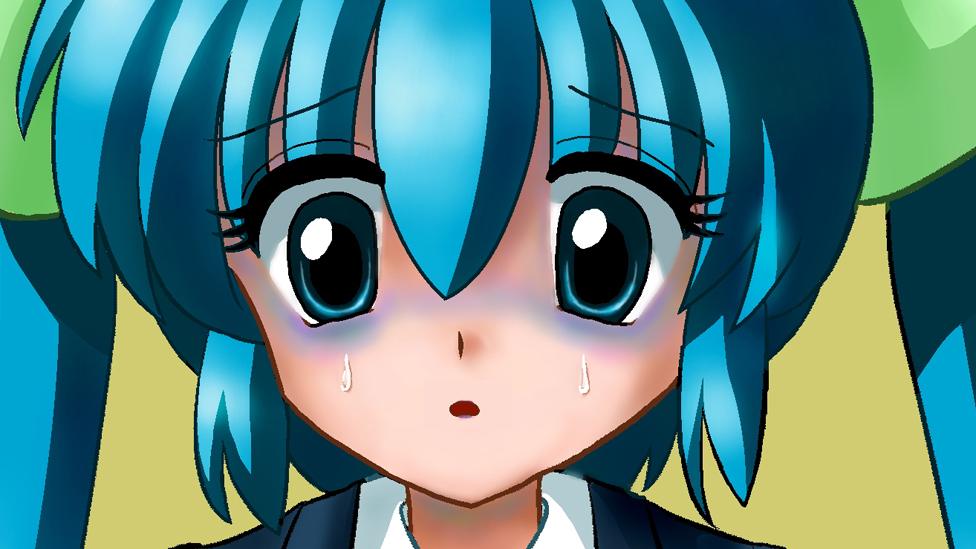
- Published30 December 2016
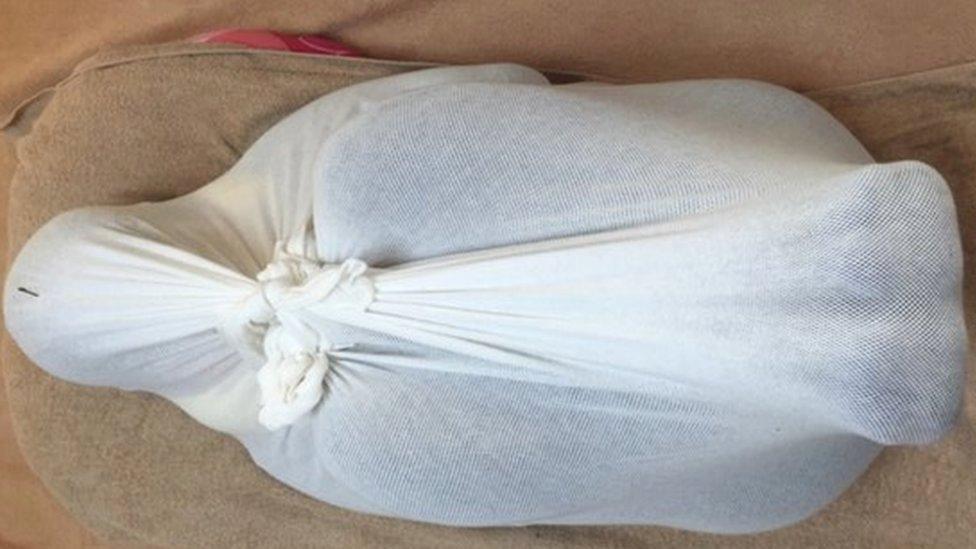
- Published29 October 2024
